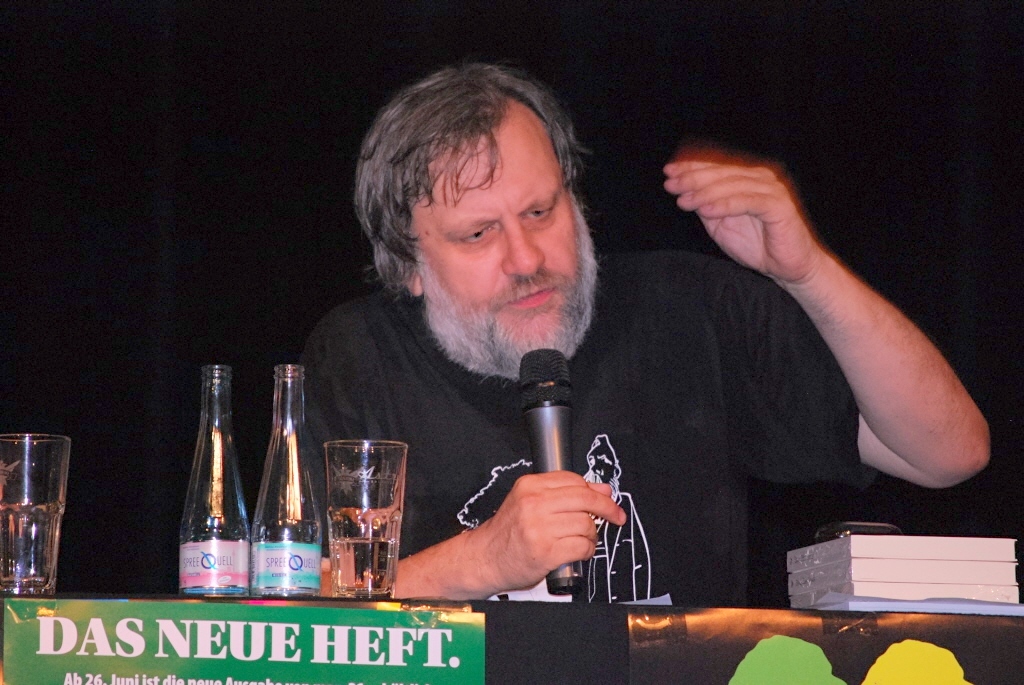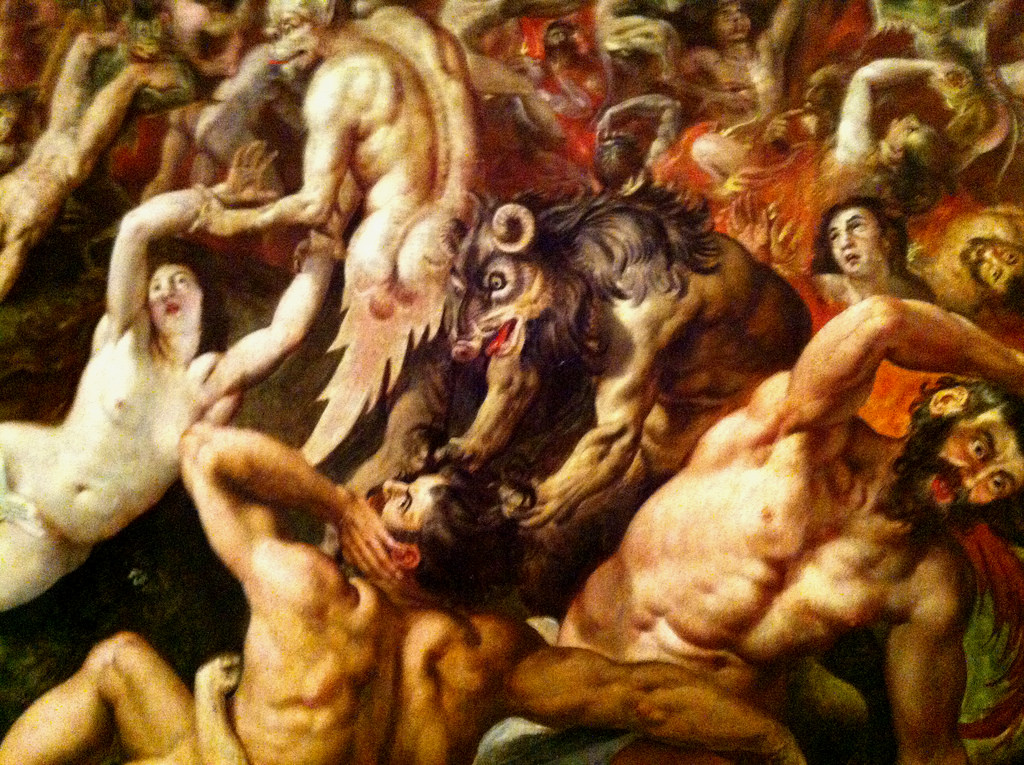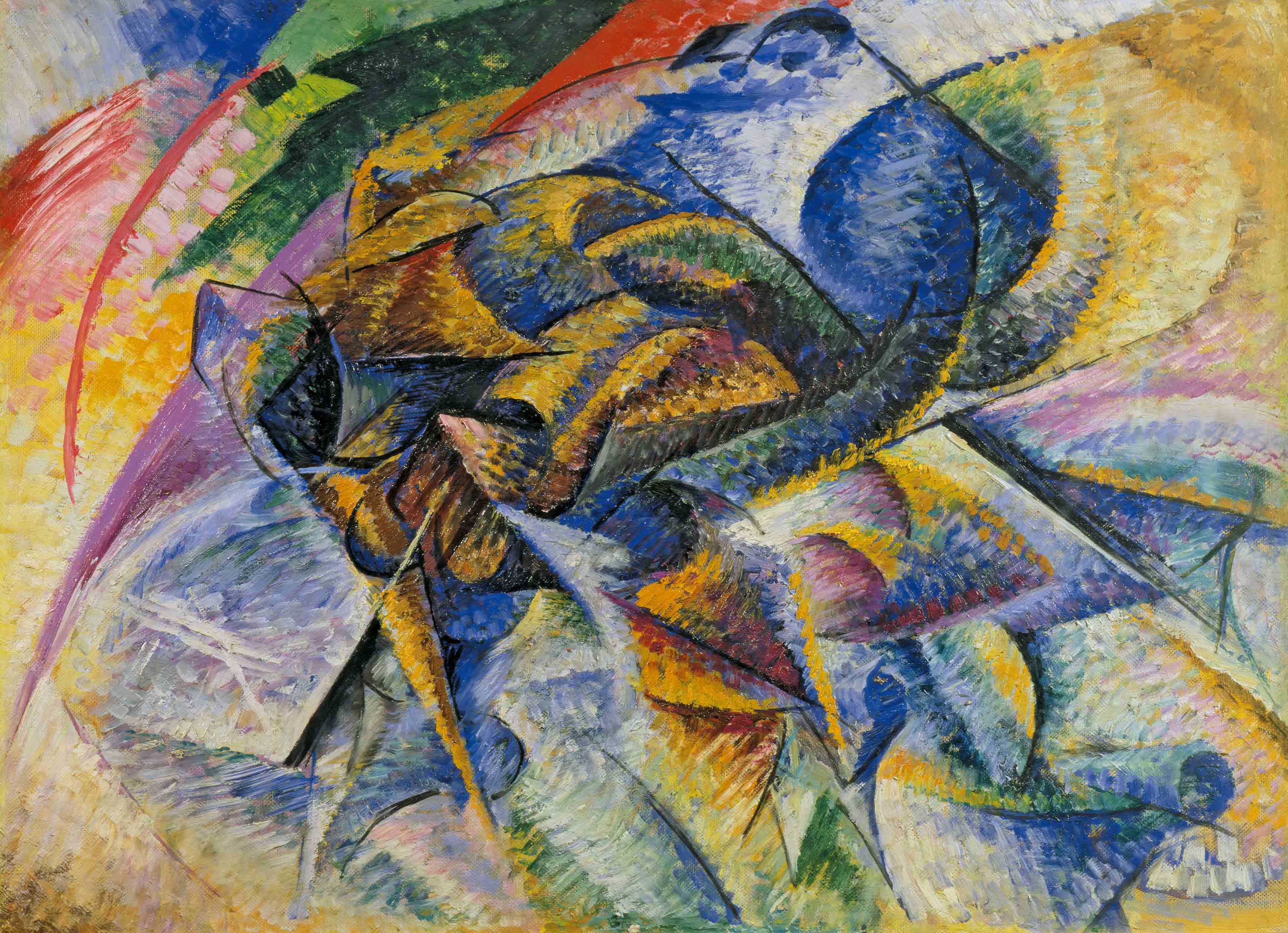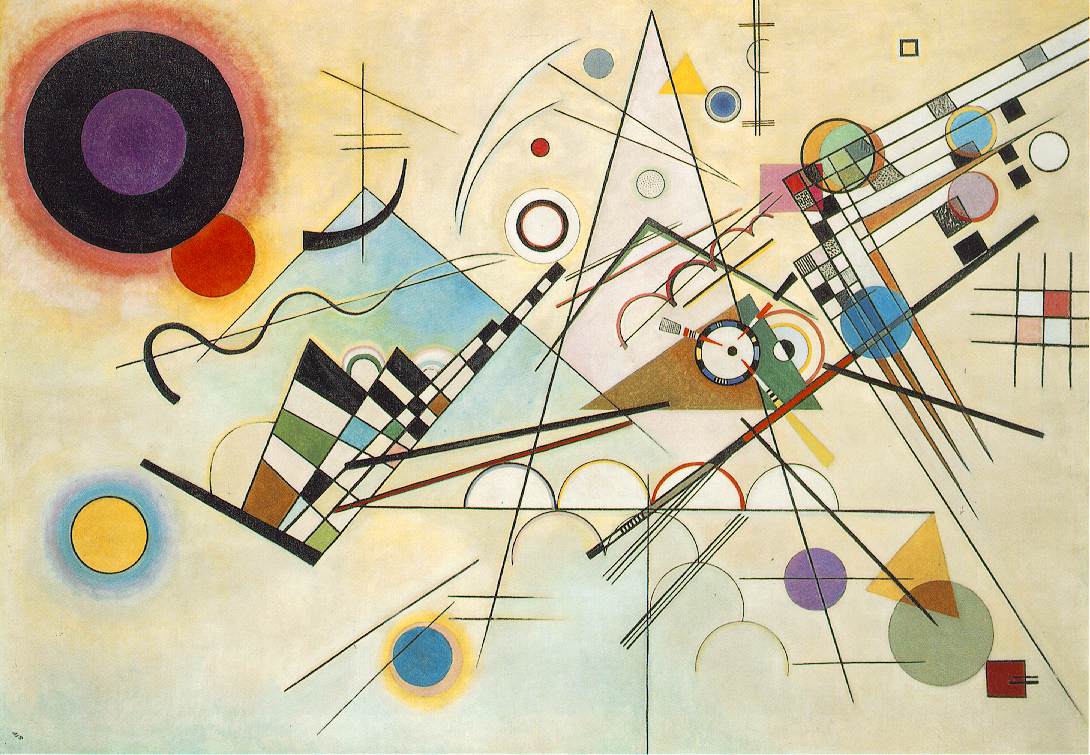The following is the second installment of a three-part series. The first one can be found here.
II
Slavoj Žižek’s return to God in the context of his wider return to Hegel is in some ways markedly distinct and in some ways surprisingly close to that of Williams. On the one hand, Žižek’s return to God takes place in the context of a rigorously atheistic ontology and, in this sense, would seem to be far removed from Williams’s own invocation of God. But on the other hand, Žižek’s return to God serves to question any straightforward opposition between ontological transcendence and immanence. Indeed, Žižek’s invocation of theology (which is, for him, in a certain sense, unavoidable) is a preeminent illustration of the way in which transcendence and immanence are mutually implicated. For him, an embracing of the thoroughgoing immanent character of reality entails not a repudiation of transcendence, but an embracing of it as inescapable feature of the immanent itself. Let us look in a little more detail at why this is the case for Žižek.
For Žižek, Hegel’s radicalism lay not simply in the fact that he was a thinker of immanence (and materialism and contingency), but in the fact that he was also, uniquely, able to demonstrate how the transcendent is able to emerge out of the immanent itself. It is because Hegel bears witness to the unavoidability of transcendence (and a purposive teleology) that he has so often been misunderstood as being a purveyor of a mystical spiritualism and of a world history determined by the purposive guiding hand of the Absolute or Geist. But for Žižek, this is to miss Hegel’s unique intervention, which is to show how ‘transcendence’ and ‘teleology’ are not simply illusory; they are (in a sense) ‘real,’ but they emerge out of the retrospective loops of the immanent, material and contingent themselves.
This is because there is an inherent antagonism, split or inconsistency, which is constitutive of reality, and which means that the immanent, material and contingent are never fully themselves. Internally split, they retrospectively ‘produce’ the transcendent and teleological, which while not themselves fully ontologically constituted, nevertheless cannot simply be dismissed as being ‘illusory’ or ‘unreal’: “the point of Hegelian dialectical analysis is not to reduce the chaotic flow of events to a deeper necessity, but to unearth the contingency of the rise of necessity itself—this is what it means to grasp things “in their becoming”.’[1]
Indeed, this logic applies not only to concepts of ‘transcendence’ and teleology, but also to the Absolute itself (and, by implication, to God). When Hegel insists that the Absolute is the ‘result of itself,’ Žižek understands this to mean that ‘there is no Absolute which externalizes or particularizes itself and then unites itself with its alienated Otherness: the Absolute emerges out of this process of alienation; that is, as the result of its own activity, the Absolute “is” nothing but its “return to itself”.”[2] That this kind of logic applies also to God is suggested by Žižek when he quotes Hegel in the Lectures on the Philosophy of Religion: ‘it is in the finite consciousness that the process of knowing spirit’s essence takes place and that the divine self-consciousness thus arises.
Out of the foaming ferment of finitude, spirit rises up fragrantly.’[3] Žižek says that this applies especially to the Holy Spirit: ‘our awareness, the (self-) consciousness of finite humans, is its only actual site, i.e. the Holy Spirit also rises up “out of the foaming ferment of finitude” … This is what Hegel has in mind here: although God is the substance of our entire (human) being, he is impotent without us, he acts only in and through us, he is posited through our activity as its presupposition.’[4] What this means is that Spirit is ‘a virtual entity in the sense that its status is that of a subjective presupposition: it exists only insofar as subjects act as if it exists.’[5] It is therefore in this sense that Žižek espouses an atheistic ontology. Far from being fully ontologically constituted, the reality of God/Spirit is a virtual one that is constituted by the thought and activity of human subjects.
At the same time, however, Žižek is careful to distinguish his thought from what he characterises as ‘humanistic atheism’. There is a decisive difference here which means that Žižek’s position cannot be reduced to the Marxist-Feuerbachian understanding of theism as simple subjective ‘projection.’ A move from the thesis of theism to the antithesis of atheism will always be insufficient. As he says, ‘it is not only that humanity becomes conscious of itself in the alienated figure of God, but: in human religion, God becomes conscious of himself. It is not enough to say that people (individuals) organize themselves in the Holy Spirit (Party, community of believers): in humanity a transsubjective “it” organizes itself.
The finitude of humanity is maintained here: Christ is the excess which prohibits simple recognition of the collective Subject in Substance, the reduction of Spirit of objective/virtual entity (presup)posed by humanity.’[6] This transsubjective ‘it’ is of critical importance to Žižek. It entails that we ‘are no longer the agent of the process, when “it organizes itself” in-through us’.[7] We can see, therefore, that the atheistic ontology of materialism to which Žižek is committed is not the inert, static, immanent materialism of secular modernity. Rather, materialism/humaity itself contains an excess – a transcendence – that exceeds itself.
This excess or transcendence is not dualistically other than, or set over and against the material/human, but rather is an intrinsic facet of the material/human as such. The implications of this can be seen when Žižek says that: ‘I don’t think one can translate theology into secular humanism. Not because of any secret, obscure reason but because there must be a moment of thinking that it is not we who are acting, but a higher force that is acting through us. This element has to be maintained.’[8]
In other words, there is an excess to human subjectivity that is beyond its control, a transcendent excess that immanent humanistic atheism cannot countenance. The latter maintains a conception of subjectivity as nominative, a fixed notion of subjectivity as foundational, whereas Žižek wants in some ways to revive the theological understanding of subjectivity as accusative; to retain the sense of a ‘force’ or ‘power’ by which we are addressed and which acts through us. At the same time, this ‘force’ or ‘power’ does not constitute some kind of occult, hidden, transcendent realm.
Rather, it is a necessary aspect of subjectivity as such. He goes on to say that at the Crucifixion, the Roman soldiers ‘thought they had destroyed everything in Christ, but that little bit of alien residue remained and started to organize itself into the community of believers. That is a crucial point. Again, what I’m saying here cannot be reduced to simplistic humanism. I think this is the legacy of Christianity – this legacy of God not as a big Other or guarantee but God as the ultimate ethical agency who puts the burden on us to organize ourselves.’[9]
The repudiation of God as a big Other is, undoubtedly, a perpetuation of atheism. But this is not an atheism of absolute immanence – the atheism of secular modernity. Rather, it is an atheism that acknowledges the necessity of God as a transcendent ‘force’ or ‘power’ that is an effect of immanence itself. But although it is an effect of immanence, it is not simply ‘produced’ or ‘projected’ by humanity. As an ‘excess’, it is something that exceeds our grasp or control.
III
What are we to make, then, of the disagreement (if such it is) between Williams and Žižek on the question of God? In the foregoing brief characterisation, we have seen that Williams is committed to a theistic ontology of transcendence; he reads Hegel through this lens, and clearly sees a compatibility between Hegel’s thought and such an ontology. Žižek, on the other hand, is committed to a materialist or atheistic ontology of immanence; he, in turn, reads Hegel through this lens, and, again, sees a compatibility between Hegel’s thought and such an ontology.
At the same time, we have also seen that the relationship between Williams’s and Žižek’s readings is something other than one of simple opposition. Williams’s conception of God’s transcendence was more complicated than one which postulated a simple contrast between God’s transcendence and the world’s immanence. There was a sense in which the transcendence of God and the immanence of the world were curiously hard to prise apart. So too Žižek’s conception of the world’s immanence was more complicated than one which simply asserted the truth of the world’s materialism, thereby eschewing all traces of divine transcendence. There was a sense in which the material world naturally and inevitably gives rise to a transcendence that can never be eradicated, a transcendence that is in some sense irreducible, even if not fully ontologically constituted.
If it is the case, therefore, that Williams’s transcendent and theistic reading of Hegel blurs and disturbs the nature of its own distinction from immanence; and if it is also the case that Žižek’s immanent and atheistic reading of Hegel blurs and disturbs the nature of its own distinction from transcendence, then we can observe certain corollaries. For one thing, we can see how different the disagreement between Williams and Žižek is from the old disagreement between the ‘right-wing’ and ‘left-wing’ readings of Hegel. The latter disagreement was constituted by a mutually exclusive relationship between the disputants, in a way that the former is not.
But this, in turn, gives rise to a second important corollary. If the disagreement between Williams and Žižek is not as mutually exclusive as might at first appear, we are led to ask whether the positions they present us with embody straightforward either-or options between which one must choose. To what extent might the difference between Williams and Žižek be understood as another instance of what Žižek himself calls the ‘parallax’? Could it be that the difference between them is simply one of a change of perspective, as a result of which the field of vision is radically altered? As Žižek himself has insisted, when confronted with differences of this kind, the point is not to endorse one at the expense of the other, but to reflect on the nature of the shift of perspective itself. That such a reflection might be warranted is suggested when we reflect that Hegel himself might be seen as attempting to reflect on the ultimate unity of transcendence and immanence.
In what follows, therefore, I shall attempt to reflect on what it might mean to think about God beyond the difference between transcendence and immanence, informed by some key Hegelian insights, and by the reflections of some of the ‘new Hegel’ interpreters we have already mentioned. In doing so, it is important to note that I am not attempting to develop an account of God that ‘really’ lies behind the accounts developed by Williams and Žižek. I am not, in other words, articulating what I take to be a more ‘clear-sighted’ vision than their more opaque ones. Rather, my account might perhaps be regarded as one that ‘mediates’ the accounts of Williams and Žižek, but without abolishing or ‘overcoming’ them. There is a sense, therefore, in which I want to preserve their accounts, and perhaps also move between them, thus both preserving the ‘parallax’ relationship between them, and also obviating the necessity of ultimately choosing between them.
We can begin by quoting Williams again, who gives a succinct account of the motivating thrust that lies at the heart of Hegel’s thought. He says that ‘the structure of Hegel’s dialectic is meant to challenge the all-sufficiency of the polarity of simple identity and simple difference. Reflection does not work with such symmetries, it requires the plain opposition of positive and negative (presence and absence) to be left behind. What is thinkable is so precisely because thinking is not content with the abstraction of mutual exclusivities, but struggles to conceive a structured wholeness nuanced enough to contain what appeared to be contradictories.’[10]
This desire for a unified wholeness that repeatedly escapes us might be regarded as the motor of the movement of the dialectic. Furthermore, if reflection desires a structured wholeness that can transcend the opposition between positive and negative, presence and absence, so too it seeks to transcend the opposition between transcendence and immanence, between the infinite and the finite. Not only does this have implications for our (immanent, finite) conception of God (transcendent, infinite), but it also clearly has implications for how we understand the relationship between human subjectivity (immanent, finite) and God (transcendent, infinite).
Catherine Malabou has emphasised the importance of the latter relationship for Hegel, a relationship which, she says, has been repeatedly neglected or actively dissociated by theologians. She says that ‘neither the subjectivity of a revealed God nor the modern philosophical notion of the subject can be seen in isolation. Yet the theologians persist in disassociating them.’[11] She says that the close affinity between divine and human subjectivity can be seen vividly in Hegel’s exposition of the ‘Death of God’, which he casts in both a theological (divine) and philosophical (human) mode: ‘On the one hand, the Death of God, the event of the Crucifixion, represents one moment within the absolute Idea; on the other hand, the Death of God appears as the truth of human subjectivity, a subjectivity that constitutes the “absolute principle of modern philosophy”.
In at least one essential aspect, the Hegelian concept of the Death of God is linked with the consideration of a certain condition or state of philosophy …, namely, that established and realized in the ideas of the Enlightenment: “The feeling that God himself is dead … is the sentiment on which the religion of modern times rests.” The suffering of God and the suffering of human subjectivity deprived of God must be analysed as the recto and verso of the same event.’[12] She goes on to say that there is a fundamental link between divine kenosis and the tendency of modern reason to post an inaccessible beyond; between the Passion of God the Son who ‘dies in the pain of negativity’ and the human feeling that we can know nothing of God.
What this fundamental link is meant to convey is the way in which divine subjectivity and human subjectivity are ‘mutually informing and constructing’. Malabou says that ‘the divine sacrifice finds its ultimate conceptual expression in the Aufklarung’s philosophical categories. Reciprocally, modern philosophy would not have its own subject if God’s sacrifice had not occurred.
The expose of such of structural solidarity between the speculative content of Revealed Religion and the philosophical categories apparently excluded from such a content represents an aspect of Hegel’s thought at its most original and most difficult.’[13] What we see from this, among other things, is that to emphasise unduly the separation between the divine subject and the human subject is a mistake. This, in fact, returns us to the point we earlier saw to have been made by Williams, when he cautioned against an undue separation between God and the world. In this respect, Malabou quotes a critical passage from the Lectures on the Philosophy of Religion:
‘God is this: not merely to be in himself, but to be just as essentially for himself. That God is spirit consists in this: that he is not only the essence that maintains itself in thought but also the essence that appears, the essence that endows itself with revelation and objectivity … Although we consider the idea of God this way in the philosophy of religion, we at the same time also have before us the mode of God’s representation. God represents only himself and does so only to himself … This is the aspect of the being-there (Dasein) of the absolute.’[14]
Commenting on this passage, Malabou says that what appears here ‘is that consciousness only represents God because God re-presents himself; consciousness is only at a distance from God because God distances himself from himself.’[15] If Malabou is right to emphasise this structural homology of the divine and human in Hegel’s thought, then we would expect there to be other consequent similarities, and these can certainly be perceived.
In her account of the emergence of subjectivity in Hegel’s Anthropology, which goes through many twists and turns, Malabou points out that ‘subjectivity originates in the possibility of self-solicitation, its own power to address itself: the “Self” is the instance which guarantees the unity of the relation of the same to the other.’[16] She says that this unification of identity and alterity immediately causes its own dissolution, and that the strength of Hegel’s analysis is that it is able to produce a synthesis, both in the presence of a unifying form and in its absence.
What this means is that Hegel ‘raises simultaneously the possibility of co-existence in real form (as in the co-existence of identity and difference; the constitution of the soul as a “Self”), and the impossibility of such co-existence (as in morbid or sick states of the soul where identity and difference can remain only in an irreducible tension). This strange synthesis of synthesis and non-synthesis is more originary than the simple synthesis of the “Self”’; in fact, it precedes the “I”.’[17] This notion of a synthesis between synthesis and non-synthesis, intriguing and suggestive as it is, is characteristic of Hegel’s thought, as we see him also speak of a unity of unity and difference, and the transcendence of the distinction between transcendence and immanence, and the unconditioned infinite that precedes the distinction between finite and infinite. It is to the distinctive nature of these formulae in Hegel’s thought that we must now turn.
Gavin Hyman is Senior Lecturer at the University of Lancaster. He is the author of The Predicament of Postmodern Theology: Radical Orthodoxy or Nihilist Textualism (Westminster John Knox, 2001), A Short History of Atheism (I.B. Tauris, 2010), and Traversing the Middle: Ethics, Politics, Religion (Cascade Books, 2013).
_________________________________________________________________________
[1] Žižek, Less than Nothing, p. 575.
[2] Ibid., p. 291.
[3] G. W .F. Hegel, Lectures on the Philosophy of Religion, Vol. 3 (Berkeley: University of California Press, 1987), p. 233. Quoted in Slavoj Žižek, ‘A Modest Plea for the Hegelian Reading of Christianity’ in Slavoj Žižek and John Milbank, The Monstrosity of Christ: Paradox or Dialectic? (Cambridge, Mass: MIT Press, 2009), p. 60.
[4] Žižek, ‘A Modest Plea’, pp. 60-61.
[5] Ibid., p. 60.
[6] Ibid., pp. 75-76.
[7] Ibid., p. 76.
[8] Slavoj Žižek, ‘A Meditation on Michelangelo’s Christ on the Cross’ in John Milbank, Slavoj Žižek & Creston Davis (eds), Paul’s New Moment: Continental Philosophy and the Future of Christian Theology (Grand Rapids: Brazos Press, 2010), pp. 179-80.
[9] Ibid., p. 180.
[10] Williams, ‘Hegel and the gods of postmodernity,’ p. 29-30.
[11] Catherine Malabou, The Future of Hegel: Plasticity, Temporality and Dialectic, tr. Lisabeth During (London: Routledge, 2005 [1996]), p. 103.
[12] Ibid.
[13] Ibid., p. 111.
[14] G. W. F. Hegel, Lectures on the Philosophy of Religion, Vol. I (Berkeley: University of California Press, 1987), p. 119 [translation modified], quoted in Malabou, Future of Hegel, p. 112.
[15] Malabou, Future of Hegel, p. 112.
[16] Ibid., p. 33.
[17] Ibid., pp. 33-34.




